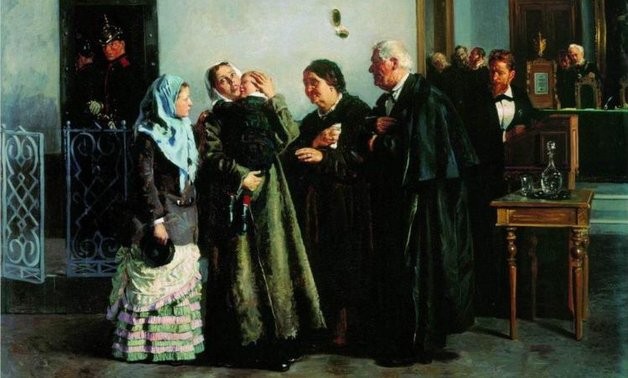Anyone regularly reading the English-language news media would get the impression that the Catholic Church has a long list of bans. Perhaps most famously the Church is said to ban contraception (especially condoms), women’s ordination, abortion, married priests, and remarriage after divorce. Even newspapers that call themselves “Catholic” sometimes write about the “Church’s ban on contraception.”
One could get the impression that the cardinals working in the Holy See spend all their time passing new laws and penalties. Yet, in the Code of Canon Law, which structures the Latin church, only 89 of the 1752 canons fall in the section dealing with penalties. While participants in abortion, murder, and simulated ordinations of women face ecclesiastical penalties, the vast majority of the Church’s pronouncements in moral matters fall within its teaching office, not discipline.
Newspapers often find themselves ill-equipped for religious stories. The problem is so common that a few religion reporters started a blog 10 years ago to address the situation. The natural tendency of those used to covering stories that involve American politics is to look for the liberal or conservative angle, and to see every pronouncement as an exercise of political power.
It’s not just the media that finds itself inclined to confuse Christian teaching with political control. John Shelby Spong, a bishop in the Episcopal Church (the American branch of the Anglican Communion), claims that hell was invented to control people.
When the newspapers report that another state has banned talking on a cellphone while driving or smoking in public buildings, they mean that the government has used its coercive powers to regulate a human activity (presumably for the common good). The result of a state-imposed ‘ban’ is that if you are caught in violation, the state will punish you with a fine or jail or community service.
But the Church’s authority in moral matters is typically different. The Church indeed has a coercive authority that she exercises in certain extreme cases (for instance, excommunicating priests who dare to violate the seal of confession and so reveal people’s darkest secrets). For the most part, however, including for many hot-button moral issues, the Church prefers to utilize her teaching authority. This is a far cry from the potentially violent authority of the state; sinners probably need not fear halberd-wielding Swiss guards breaking down their doors. What the New York Times might call the Catholic Church’s “ban” on contraception is actually the Church’s teaching that “any action which either before, at the moment of, or after sexual intercourse, is specifically intended to prevent procreation—whether as an end or as a means” (Humanae Vitae 14)—is immoral.
The pope and bishops don’t simply decide what they think is best; instead they apply doctrinal and moral principles to present circumstances. As the First Vatican Council’s dogmatic constitution Pastor aeternus says, “the Holy Spirit was not promised to the successors of Peter that they might disclose a new doctrine by his revelation, but rather that, with his assistance, they might reverently guard and faithfully explain the revelation or deposit of faith that was handed down through the apostles.” While a new state legislature might lift the ban on trucks in the left lane, we shouldn’t expect a new pope to suddenly teach that contraception is acceptable.
Furthermore, the Church’s moral teaching isn’t about deciding who goes to hell and who doesn’t. The mission of the Church’s moral teaching is to show man the road to happiness. The avoidance of hell is the least of the benefits of living a life in union with God.
The Church is not primarily looking to sort out sinners or protect society from bad people; she is looking to heal sinners. As with any true physician, the first step is diagnosis. Identifying the sin helps us to find the right road to happiness.
When you plead guilty in court to texting on a highway before a judge, he fines you. When you plead guilty in the confessional to anything before a priest and resolve to make amends, he in the person of Christ forgives you.
✠
Image: Vladimir Makovsky,Verdict







